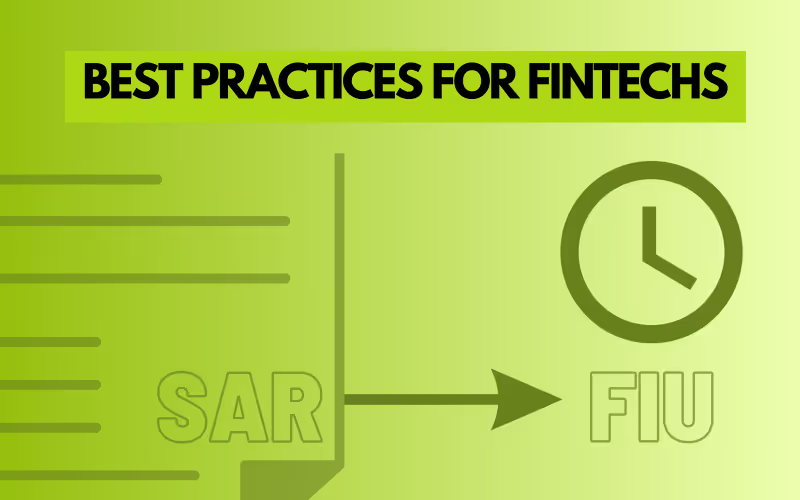
What To Do When FIUs Don’t Respond to Your SARs
FinTech compliance teams face a tremendous legal challenge: Operating as a regulated financial services provider means a responsibility to submit Suspicious Activity Reports (SARs). However, what happens when your Financial Intelligence Unit (FIU) doesn't follow up? What do you do when you need guidance? What should you do when that guidance doesn't arrive? In this sanctions.io guide, we dive into the issue and provide best practices for what is a frustrating scenario.
Why Don't Financial Intelligence Units Always Follow-Up?
Submitting SARs to their respective FIUs is a legal responsibility that FinTechs must put resources towards as an impossible-to-ignore cost of doing business. These investments include services such as sanctions screening technology - as offered by sanctions.io, with FinTech clients worldwide.
Before continuing, it's important to remember that FIUs all over the globe are responding and investigating SARs every day and doing an incredible job in what is a thankless task.
However, a common scenario is this: Excellent compliance teams diligently working away, who are proud to be battling financial crime, don't always receive anything back from the FIU beyond the your SAR submission has been accepted automated email.
As time passes, and still nothing in the inbox from the FIU, FinTech compliance teams may feel uneasy. We'll look into the problem in the following section. But first, let's answer this question: Why don't they always follow up?
Here are some of the reasons why:
- Overload: FIUs may be unable to handle all SAR submissions because they are overwhelmed.
- Limited Resources: Like any government body, FIUs often operate within budget constraints, impacting the overall ability to achieve objectives.
- Unclear Guidance: The world of financial crime is dynamic and ever-evolving. FIUs may have yet to formulate guidance for your specific issue and cannot assist. FinTechs are especially exposed to this because they may operate in innovative sectors with unclear regulations.
As sanctions.io reported earlier in the year, many FIUs may also be feeling the heat with SAR filings surging in 2023 for reasons such as growing information sharing between financial services companies.
And the reality is, for all the above reasons, FIUs may not always reply or guide you. We'll now examine why this is a problem for FinTech compliance teams.
{{snippets-guide}}
The Problem for FinTech Compliance Teams
When FIUs don't follow up on SAR filings and offer little guidance, it can become a burgeoning problem. But how so? The most serious concern is that the tables can turn on a FinTech in the blink of an eye.
What was ignored by an FIU could suddenly become of interest (perhaps due to a change in policy after a high-profile case).
And here are two more significant problems FinTechs may face:
Compliance Risks
FinTechs may expose themselves to enhanced compliance risks and violations if they hesitate to take action because of unclear guidance. The problem is that complicated scenarios constantly present themselves.
For example, one challenging situation is when suspicious funds have already been converted into securities, which cannot easily be refunded because the funds are no longer in the same form.
Every day, FinTechs must make decisions, and often, they must do so with limited guidance from regulators.
Operational Uncertainty
The lack of follow-up from an FIU can create operational uncertainties for FinTechs. Not only may compliance officers feel unsure of what to do in many scenarios - but the effects can filter through various business operations.
For example, in an industry where a frictionless digital experience is paramount, customers (who have done nothing wrong) may be adversely affected. Another type of stakeholder, such as a potential investor, may also question the company's approach to risk.
Top Tips for FinTechs Managing FIU Problems
Now that you know why FIUs don't follow up and the problems it creates for FinTechs in terms of compliance and operationally, what can compliance teams do to mitigate the risk of issues snowballing out of control?
Here are some best practices:
Tip 1: Document Everything
In sanctions.io's guide - 5 Ways Compliance Officers Can Minimize Personal Liability - we discussed how documenting everything can significantly reduce personal liability risks for compliance officers.
This principle applies not only to personal liability but also to the collective liability of the entire FinTech organization.
And remember about the possibility of the tables turning on a FinTech? Accurate record-keeping of the following is vital in scenarios when legal scrutiny arises unexpectedly:
- SAR submissions (with respective internal communications)
- All communications and attempts to talk with the FIU
- Internal decisions and meeting notes
Tip 2: Establish a Relationship With Your FIU
All companies and organizations should attempt to form close relationships with governmental stakeholders - that's why the public and governmental affairs profession exists.
FinTech compliance teams can learn from this profession regarding relationship building with real people working inside the respective FIU within a jurisdiction. One of the best ways is to attend workshops, webinars, and other initiatives held by the FIU to form professional connections.
FinTechs nurturing these relationships may have quicker access to the information and clarity they seek.
Tip 3: Keep Submitting SARs (and Improve Them!)
When your FIU doesn't follow up on your SARs, and you feel like it's being brushed aside, it's vital to continue submitting them with persistence and diligence. Remember, by filing them, your FinTech is staying compliant and meeting its AML and CTF regulatory obligations.
But here is another important point: Don't just continue with a business-as-usual attitude - but make the SARs even better.
For example, FinTechs can update their internal processes so that all SARs without any response are rigorously reviewed and refined. An area that may have slipped through the cracks is how the information is structured and presented. Ensure that your SARs are organized clearly and logically, effectively providing relevant details.
Here is another helpful suggestion: Online tools such as Grammarly utilize AI and can help you formulate SARs that are easy to follow and understand.
Final Thoughts (Plus a Bonus Tip)
This article revealed that although it's frustrating not to receive feedback and guidance from an FIU after a SAR filling, there are ways to prevent challenging situations from deteriorating.
This final tip is also vital: To engage with legal counsel - especially if the suspicious activity is considered severe and poses a serious risk to your FinTech.
Recommended reading: How Budget-Savvy FinTechs Can Reduce the Cost of AML Compliance
About sanctions.io
sanctions.io's cost-effective solutions help FinTech companies worldwide with their screening needs. To learn more about how our sanctions, PEP, and criminal watchlist screening service can support your organization's compliance program:
We also offer a free 7-day trial (no credit card is required) and will be delighted to walk you through our service.
sanctions.io is a highly reliable and cost-effective solution for sanction checking. AI-powered and an enterprise-grade API with 99.99% uptime are reasons why FinTechs globally trust us with their sanctions screening needs.



